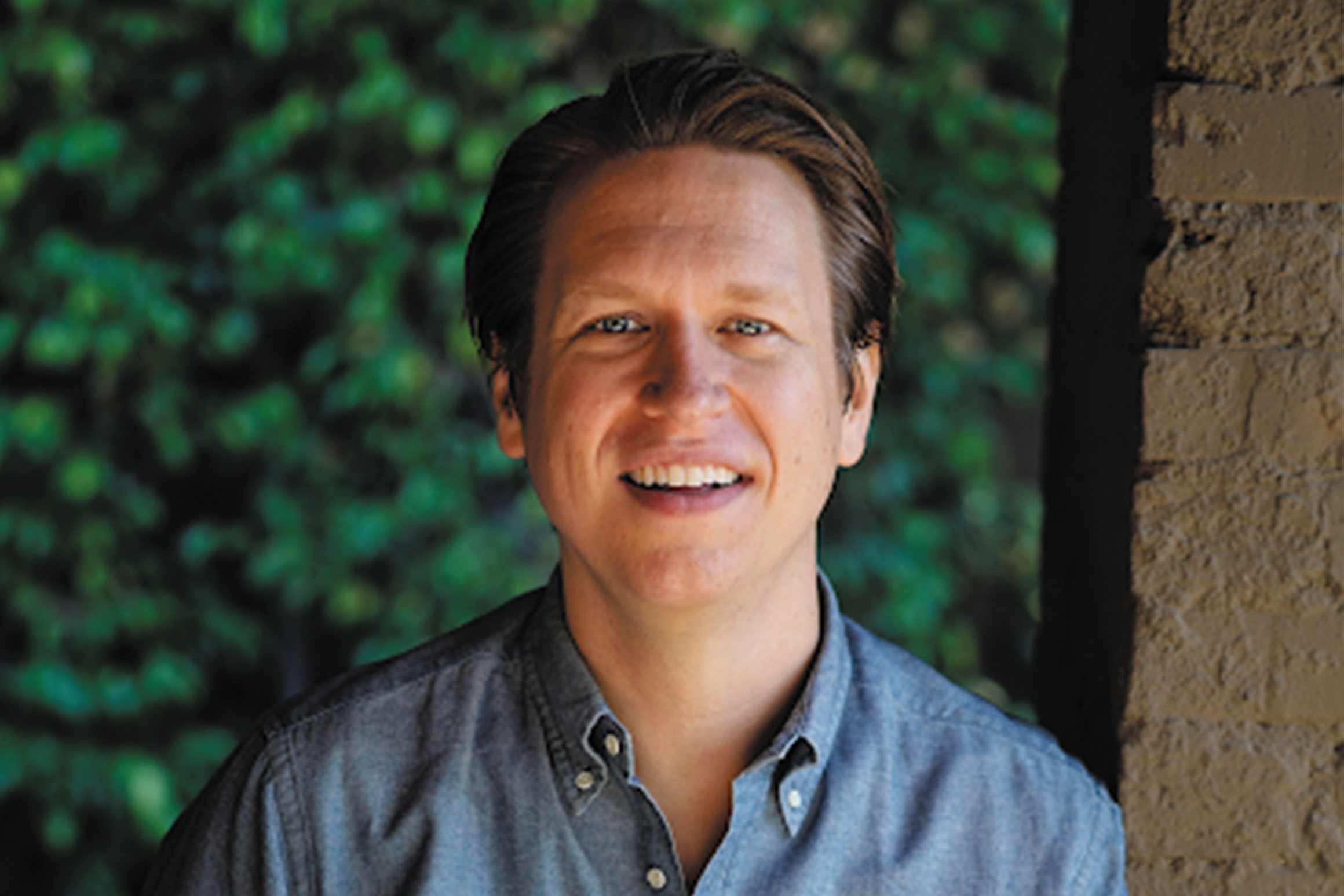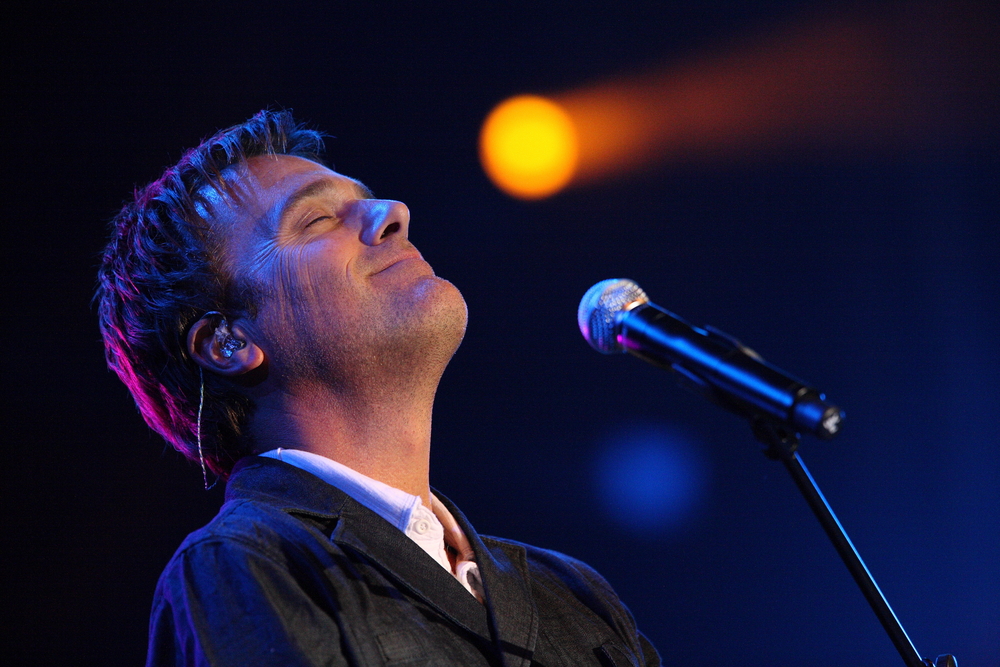
If you’ve seen HBO’s Crashing, than you’re already familiar with the story of comedian Pete Holmes. Raised in an evangelical household, Pete went to a Christian college and even considered going into ministry.
But, after his marriage fell apart, he embarked on a faith journey that saw him abandoning the style of religion he was raised in and exploring big ideas about God, spirituality, relationships and the meaning of everything.
In his new book Comedy Sex God, Pete digs deep into his own story and how he’s evolved spiritually.
We recently spoke with Pete about the book and how writing it became its own kind of spiritual experience.
Fans of your You Made It Weird podcast know that comedy, sex and God are themes you frequently revisit, but tell me how they inspired the book?
I think when people are setting up a podcast it’s good to not necessarily have too strict perimeters on what the podcast is going to be, because over time what the podcast sort of wants to be will reveal itself. And in my case, comedy, sex and God—somewhere around the 150 or so 100 episodes in—I realized those were the three topics that clearly, if you let me talk to anybody, I want to talk to them about comedy, which is just another way of saying creativity or art; sex is just another way of talking about love or relationships; and then God which is just another way of the saying the phenomenon that anything should exist at all.
I originally was going to do three books. One called Comedy, one called Sex, one called God, and divide them in a set. But then I was like, “I don’t care as much about just talking about my career or just talking about my relationships as much as I want to talk about the third one.”
Did writing the book make you think about God in a different light?
Yeah. I think most people can relate—or maybe it’s one of the ways they can possibly relate to God or creation … by creating things.
Most of the people that do my podcast are atheist. And one of the ways that I can usually bond with people that don’t have a structure for their beliefs that involves a God is by talking about creativity.
When people are painting or doing photography or writing or filmmaking or anything like that, there’s often a sense of losing yourself, and being a mouthpiece for the idea. You get out of the way of yourself, and that is one of the ways that I experience the mystery that I like to call God.
That is one of the ways that I can relate to God – that a lot of people can relate to God. Whether or not they’d call that a spiritual experience …I think they would say an otherworldly experience. Like a strange feeling.
You feel like the radio, and you’re just picking up on the song. And that’s what the idea is. A lot of creative people have had that idea. So for me, writing about God was one of the best ways to sort of hang out with that feeling, that place. That’s one of the reasons I like doing it.
I would usually get up in the morning [and write] because the morning is when ideas like the ones in my book tend to make the most sense. In the morning I can hear my quieter voice a little bit more clearly, and in those moments I loved it.
On one hand, we have to say writing is difficult. I think what is often left out is that writing can be incredibly euphoric and satisfying, and I think that’s why a lot of people keep doing it even though it can be so painful.
What do you hope that young Christians—who are like “Young Pete” in the book—will take away from the book and your story of losing your faith and finding it in a new way again?
It’s a really, really courageous thing, as Tolkien says, to go out your front door. But it’s a really courageous thing to metaphorically leave your front door as well.
The religion that I was sold, or lovingly given actually, I don’t think it was manipulative or bad. It was given to me, but part of it was not to question it.
Sort of like the game. Even if the potato that they hand you is really, really hot at times, and you want to drop it, the game is to never drop the potato and dropping the potato of course means ending your faith, adapting your faith, broadening your faith, changing your faith, deleting sections of your faith, replacing sections of your faith with other text, rewriting sections of your faith with your own words—all these things the Church might see those as dangerous territory.
So they tell you to stick with what you were given, which is based on to whom you were born, where you were born and when you were born. Of course, all of us know that. And Young Pete and the people that we are hypothetically talking to here, know that too but they’re too afraid. I was too afraid to really sit with that idea: that I was a Christian because I was born in America in 1979 to white people in Boston. I’m a part of a system.
So if anybody is evangelical and they’re curious …I would encourage those people to be gentle with themselves and to be patient with themselves and to be loving with themselves and to go at their own speed. It’s valuable stuff, and it’s delicate stuff, and it’s deeply psychological stuff.
Don’t look at it as like letting go of something; look at it as adding dimension to what you already have.
So even though maybe my young self might look at somebody like me as like some rebellious deviant or a heretic, I can be like, “Yes, I understand because I’m 15 steps removed from you.”
Just focus on the first step, follow your intuition. Follow your heart. Listen to that voice that says maybe there’s more to this game than just the identity of belonging to my parents’ church and belonging to my city’s church and my country’s church.
Maybe there’s something so much more cosmic and mysterious and infinite going on here that is way bigger than just what you were told on Sunday mornings. Not that there’s anything wrong with that, but instead of seeing that as the final destination, look at your life as an infolding of these ideas, as an evolution of these ideas, as a play or a dance of these ideas.






















